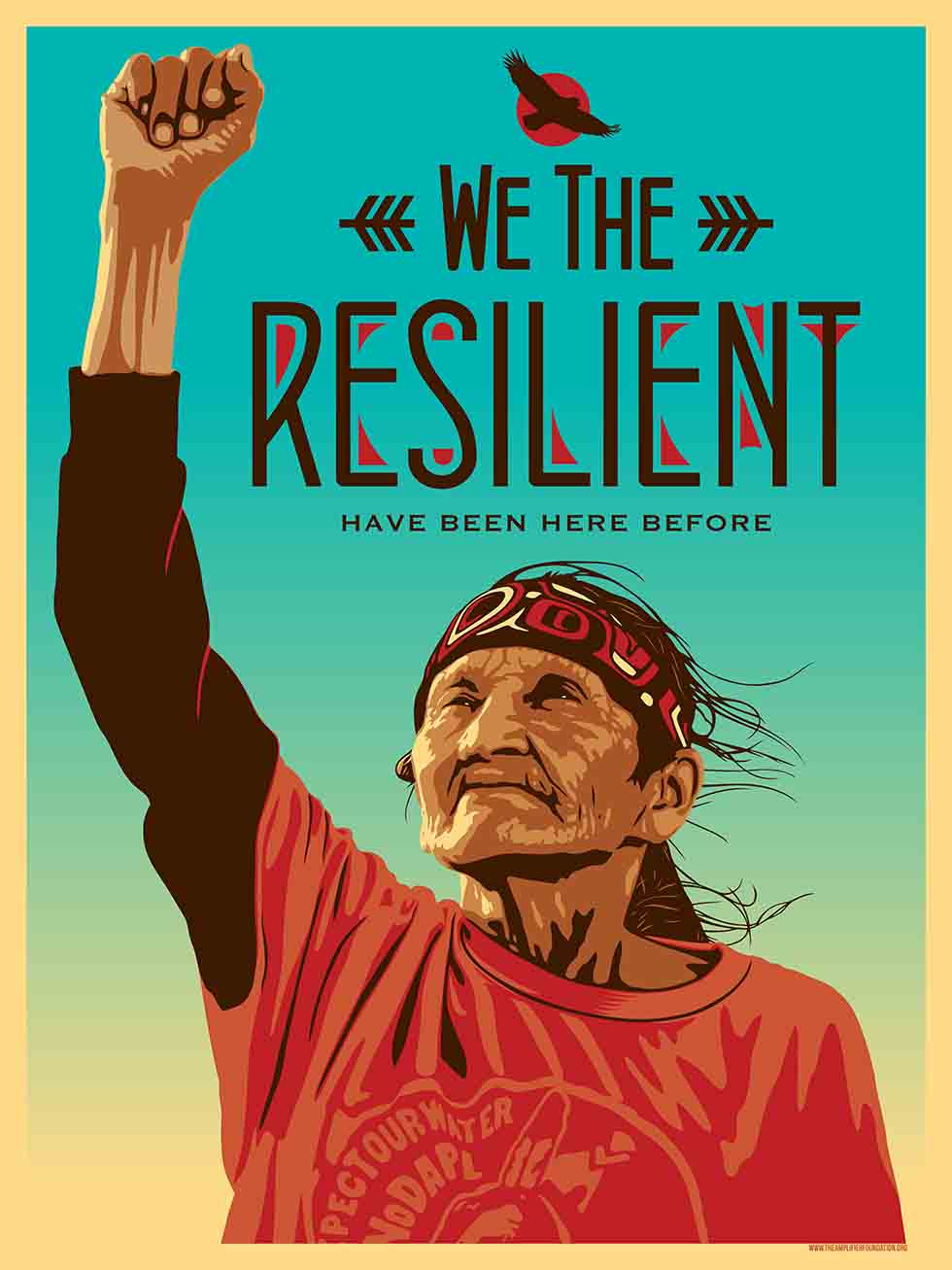
With Thanksgiving week upon us, it is important to acknowledge the difficulties that Native American communities continue to face over control of sovereign lands. Native Americans have long participated – and continue to participate – in the fight to protect these lands from the federal government’s pipeline plans. The recent Keystone Pipeline oil spill in South Dakota (and yesterday’s approval of the Keystone XL Pipeline running through Nebraska) is merely one of many reasons that Native Americans have avidly protested against the federal government’s infringement upon their sacred land; air pollution, soil pollution, and water pollution are some of the many residual effects from these pipelines’ frequent oil spills, impacting both the communities living on and near this land as well as the environment as a whole. During this holiday, we recognize and honor Native women activists who have been important figures in the fight for Native American environmental, political, social, and economic rights, as well as those who continue to fight still.
Winona LaDuke
Winona LaDuke (Anishinaabe) is a highly acclaimed environmental and political activist. Born and raised on the White Earth reservation in northern Minnesota, LaDuke helped found two of the most influential Native organizations: Honor the Earth and the White Earth Land Recovery Project . As the program director of Honor the Earth (an organization that she co-founded with Indigo Girls Amy Ray and Emily Saliers), she fights to further environmental awareness and conservation projects in Native communities. Honor the Earth not only raises awareness of issues like climate change and renewable energy, but it also provides financial support to environmental justice issues in Native communities.
LaDuke is the sole founder of the White Earth Land Recovery Project, one of the leading Native organizations focused on issues of culturally-based sustainable development strategies. Through this organization, LaDuke works nationally and internationally to protect Indigenous wildlife, nature, and food crucial to preservation of Native heritage. WELRP’s work aims to reclaim and protect Anishinaabe land as well as “continue, revive, and protect our native seeds, heritage crops, naturally-grown fruits, animals, wild plants, traditions, and knowledge of our Indigenous and land-based communities. We strive to maintain our culture and resist the global, industrialized food system that corrupts our health and freedom through inappropriate food production and genetic engineering.”
In 2007, LaDuke was inducted into the National Women’s Hall of Fame for her work on environmental preservation and Indigenous land recovery. As an activist and leader, she was also awarded the Reebok Human Rights Award in 1988 (the award’s inaugural year), the Thomas Merton Award in 1996, and Ms. Woman of the Year in 1998. In addition to her activist work and numerous awards, LaDuke is also the author of five books, and has twice campaigned for Vice President on the Green Party ticket (in 1996 and 2000).
Suzan Shown Harjo
Suzan Shown Harjo (Cheyenne and Hodulgee Muscogee) is a Native American policy advocate, writer, and is one of the leading activists for Indigenous rights and fair representation. Harjo served as the congressional liaison on Native American affairs for President Carter and was involved with the creation and passage of several laws pertaining to Indigenous rights. These laws include the American Indian Religious Freedom Act (1978), the National Museum of the American Indian Act (1989), and the Native American Graves Protection and Repatriation Act (1990).
Harjo has been one of the most prominent voices in the fight to retire bigoted mascots based on Indigenous people, especially Washington D.C.’s NFL team, the R*dskins. Harjo was the driving force behind the cases that led the U.S. Patents and Trademarks Office to cancel the federal trademarks for the Washington R*dskins in 2014. In response to her dedicated activism on behalf of Native American communities, Harjo received the Presidential Medal of Honor from President Barack Obama in 2014.
Dina Gilio-Whitaker
Dina Gilio-Whitaker (Colville Confederated Tribes) is a nationally recognized and award-winning writer for her work on Native American nationalism, self-determination, environmental justice, and education. Gilio-Whitaker was born and raised in Los Angeles by her mother, who left for L.A. during the Colville termination.
Gilio-Whitaker’s urban Indian identity brings forth an important perspective on issues regarding Native American communities, especially in her role as Policy Director and Senior Research Associate at the Center for World Indigenous Studies, an organization focusing on research and education to promote a wider understanding of Indigenous cultures, heritage, and sovereignty. Gilio-Whitaker has spent the past several years representing the voices of millions of Indigenous people at the United Nations.
Along with Roxanne Dunbar-Oritz, Gilio-Whitaker published her first book, All the Real Indians Died Off and 20 Other Myths About Native Americans, in 2016, earning much critical acclaim and dispelling misconceptions and stereotypes about Native Americans.




